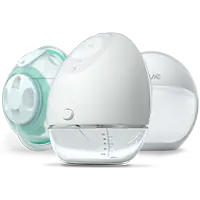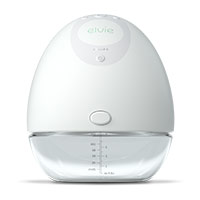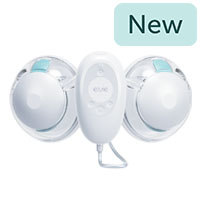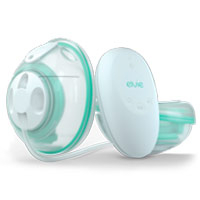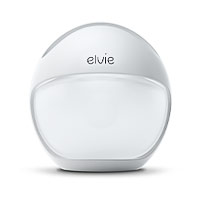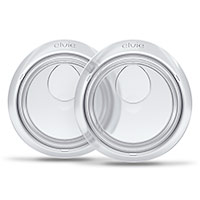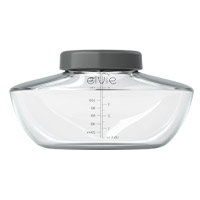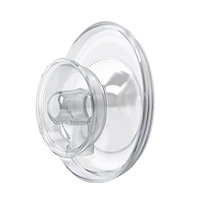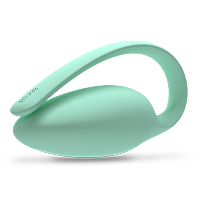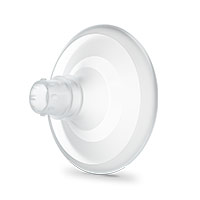How your hormones can affect your mood, sleep and intimate health after birth
The key hormones we are looking at here are estrogen and progesterone. Estrogen production rises so high during pregnancy, that a woman will produce more of the hormone during one pregnancy than during the rest of her lifetime. Not surprising, since it’s estrogen that helps grow new blood vessels, transfer nutrients and support the growing baby. Progesterone helps the uterus grow to size and both hormones are important in creating the healthy pregnancy glow so typical of a mum-to-be.
However, straight after birth, estrogen and progesterone levels plummet - sometimes together and sometimes unequally. This can sometimes result in a host of unwelcome side effects, including fatigue/sleeplessness, depressed moods, night sweats/breastfeeding sweats, vaginal dryness, recurrent infections, inability to lose weight and menstrual problems. Yikes!
If this is sounding all too depressing, don’t panic! The hormone dip is temporary, closely linked to the period directly between giving birth and ending breastfeeding. Once breastfeeding ends, hormone levels soon return to normal. And everyone is affected differently – some women may experience few, if any, symptoms at all.
In the meantime, there are plenty of ways to help minimize the effects. But, of course, if you have any concerns, please go to see your doctor.
How to deal with hormonal changes during and after pregnancy
Now, it’s never going to be easy while juggling a baby, possibly a toddler, a laptop, a packet of slightly crushed biscuits and a cuddly toy, but we’ve tried to include things that can be done wherever you find yourself with a spare minute (or even second) or two of calm:
Deep breathing. Whatever you are doing, stop now and take 10 really good deep breaths. Expel the air from your lungs fully each time. Repeat several times a day. Deep breathing mimics how your body acts when it is relaxed and gives you an extra boost of oxygen with each breath.
Indulge. We like this one: choose something you’d really like to eat and then really enjoy it mindfully. Hunger is a stress to the brain, so having a good snack and eating it mindfully (no checking phone messages while you indulge – this is meant to relax you) can help calm you and increase your sense of wellbeing.
Turn your phone off or put it on silent. The constant tether of a phone and its insistent pressure to respond to messages is certain to increase stress. Try and take a few breaks from your smartphone every day and enjoy them. This is one you can do any time!
Take a walk. Pop baby into the buggy, rain or shine – remember, it’s never bad weather, just bad clothing. Taking even a short walk can boost your levels of endorphins, making you feel happier and calmer. Double the benefit by trying to find a green walk amongst trees and plants all of which will help reduce stress hormones.
Sleep. Getting a truly restful sleep is key to combating stress levels, as well as increasing immunity, physical and mental recovery, emotional balance and general well-being. Now, this is a tricky one, since for the first days, weeks, months and sometimes years of a baby’s life your sleep patterns might be topsy-turvy.So here are a few top tips whenever you are trying to catch some sleep:
Keep sweat away from your body. This can be as basic as throwing off the bed sheets, but we recommend wearing Cucumber Clothing’s moisture-wicking nightwear and loungewear. These won’t stop the hot flushes but will wick any sweat up and away from the body at speed, killing off any odor-creating bacteria at the same time. No more pools of sweat or soaking sheets. They are wash and wear. Just hang to dry (very quick – thanks to its moisture-wicking properties). No iron, no fuss and you get to look good too
Try and keep your bedroom cool. About 65ºC is good. Turn off all lights and get rid of any electronic buzzing or beeping, as well as flashing gadgets
Eat early and keep your evening meal as light as possible. Try and avoid bedtime snacks, as acid reflux, heartburn or general digestion can interfere with and delay sleep – especially when you need it most
Try to keep to as regular a bedtime routine as possible. This rule works well for both you and baby. If time and circumstance allow, incorporate a relaxation or meditation practice. This can be as simple as having a soothing bath with delicious sleep inducing oils and a cool compress, or a few minutes of quiet chanting or calming yoga stretches. Whatever feels good for you, when you can squeeze it in.
Here’s wishing you the best sleep possible – night or day.
This blog post was written by the team at Cucumber. Cucumber Clothing is a luxury clothing and nightwear brand that uses intelligent high-tech fabrics to keep you looking and feeling cool. They are the #nosweat solution for any woman who gets hot, whatever the reason. To find out more visit www.cucumberclothing.com.
If you enjoyed this post let us know on social media by tagging @elvie and @cucumberclothing. Or if you're ready to invest in your self-care get your hands on an Elvie Trainer, our award-winning Kegel trainer.

